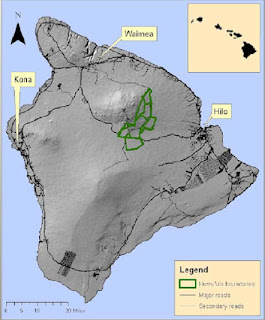
Leaders of the tourism industry came with clear messages to share with House lawmakers Monday at an informational briefing with the Tourism Committee:
more money is needed for marketing Hawaii at more globally competitive levels and
taxing complimentary hotel rooms hurts the industry.
The informational briefing was held to discuss the “Tourism Industry’s Major Pocketbook Issues”. Invited to the hearing were representatives from the Hawaii Tourism Authority, the Waikiki Improvement Association, and the hotel industry.
"We scheduled this briefing to learn more about the history of tourism taxes in Hawaii and hear from some of the hotel industry leaders who often can't come to the Capitol," said Rep. Tom Brower, chair of the House Tourism Committee. "We wanted to know how our tourism laws are affecting their properties."
Compared to previous years, 2011 was a good year for tourism in Hawaii. However, despite the rise in visitors and revenues, industry leaders warned lawmakers against getting too comfortable.
“This great year we had in 2011 is fragile,” said Rick Egged, President of the Waikiki Improvement Association. He added that the next years may not be as fruitful.
Like his other colleagues mentioned in testimony, Egged said that 2011 was a good year for a variety of reasons, including uncontrollable factors that swayed in Hawaii’s favor. The first of which is the favorable exchange rate for international visitors, the second being the increase of airline destinations from Honolulu.
What can be controlled - and has been a success - is the “investment in product (infrastructure)”, the marketing efforts made by the state, and the amount of cultural and sporting events held throughout the year, he said. However, the state must constantly improve its product and marketing strategies to remain competitive.
Reiterated by many of the testifiers at the briefing was the fact that Hawaii’s infrastructure - specifically parks, beaches, and bathrooms – must be improved. A representative from HTA mentioned that in surveys of Hawaii visitors this category is always rated the lowest.
It was clear that the tourism industry representatives at the informational briefing were on a mission to educate lawmakers on the industry's financial issues and gain support for the measures currently being vetted at the Legislature.
A
Senate bill (SB490) moving through the process will increase funding for HTA marketing efforts by $2 million every year until 2015. Last year HTA spent $80 million on the marketing of Hawaii. The measure advanced from the Senate Tourism Committee and will cross over to the House for consideration.
Lowell Kalapa, from the Tax Foundation of Hawaii, opined on the new law passed last session that imposes a flat $10 transient accommodation tax on complimentary rooms. This law is “not helping the industry to survive,” he said.
Hotels are known to offer complimentary room packages and promotions to entice guests to stay at their property, and sometimes offer complimentary rooms to charity organizations. Industry leaders noted that hotels leverage their comp rooms for a substantial return on investment, but they have seen a decrease in comp rooms given since the new law was enacted.
David Carey, from the Outrigger Enterprises Group, told lawmakers that taxing complimentary rooms are not going to achieve the State’s revenue goals, but it does affect the hotel industry's bottom line.
Rep. Tom Brower said that the Tourism Committee wants to look into the complimentary room tax. "Complimentary rooms are used to promote Hawaii as a visitor destination," he stated. "If less complimentary rooms are being offered, we may be hindering the desired results the hotel industry strives for in terms of promotion. I'm also concerned about how this affects Hawaii charities. We'll be taking a good look at the measure when it is heard in committee."







































